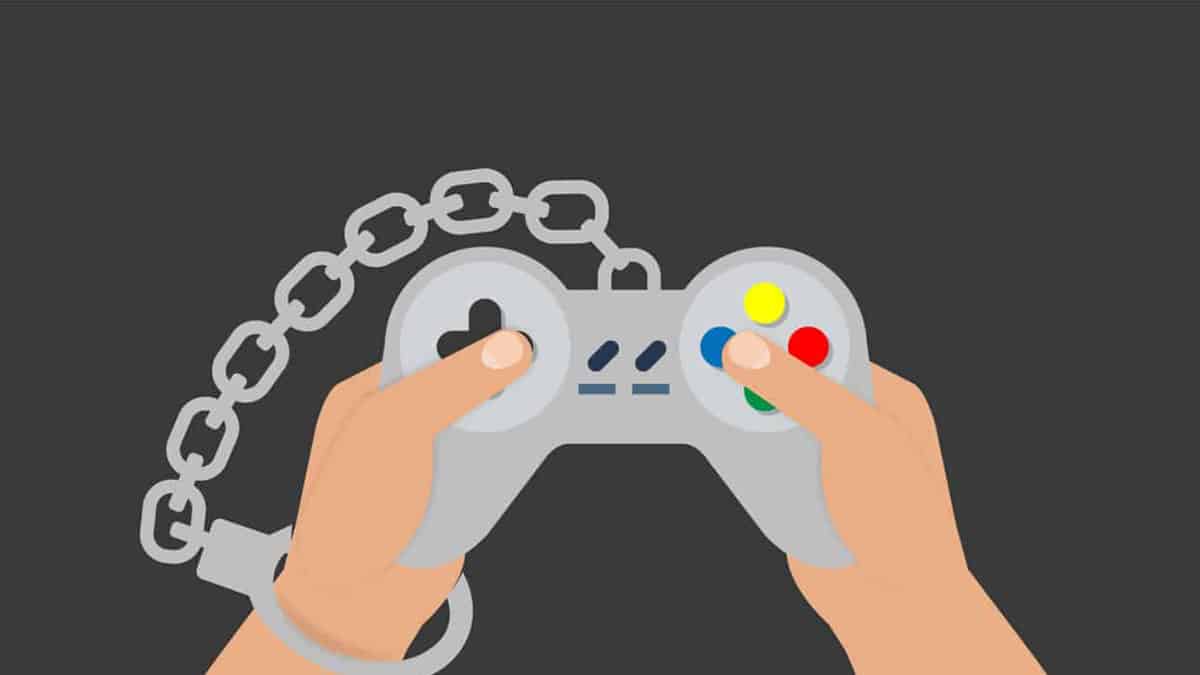
Video Game Addiction – Treatment, Symptoms, and Causes
Video game addiction is a real mental health condition affecting millions of people around the world. In this article we share what the common warning signs are and the symptoms of addiction.
We also share what causes gaming to become a problem and common effects, positive and negative. At the end, you will find various treatment options which include self-help and peer support options and professional support.
What Is Video Game Addiction?
Video game addiction is a real mental health condition affecting millions of people around the world.
The World Health Organization recognizes it as “Gaming Disorder” in their International Classification of Diseases (ICD-11) as “a pattern of persistent or recurrent gaming behaviour, which may be online or offline, manifested by impaired control over gaming, increasing priority given to gaming to the extent that gaming takes precedence over other life interests and daily activities and continuation or escalation of gaming despite the occurrence of negative consequences.”
Although billions of people play video games, the majority of them do not have an addiction to gaming, and the World Health Organization estimates the number of people with an addiction is 3-4%. The difference between a healthy fun gaming hobby and an addiction is the negative impact the activity is having in your life.
Typically a gaming addict will have a level of severity resulting in “significant impairment in personal, family, social, educational, occupational or other important areas of functioning,” and the pattern of gaming behavior is “normally evident over a period of at least 12 months in order for a diagnosis to be assigned, although the required duration may be shortened if all diagnostic requirements are met and symptoms are severe.”
What Causes Gaming Addiction?
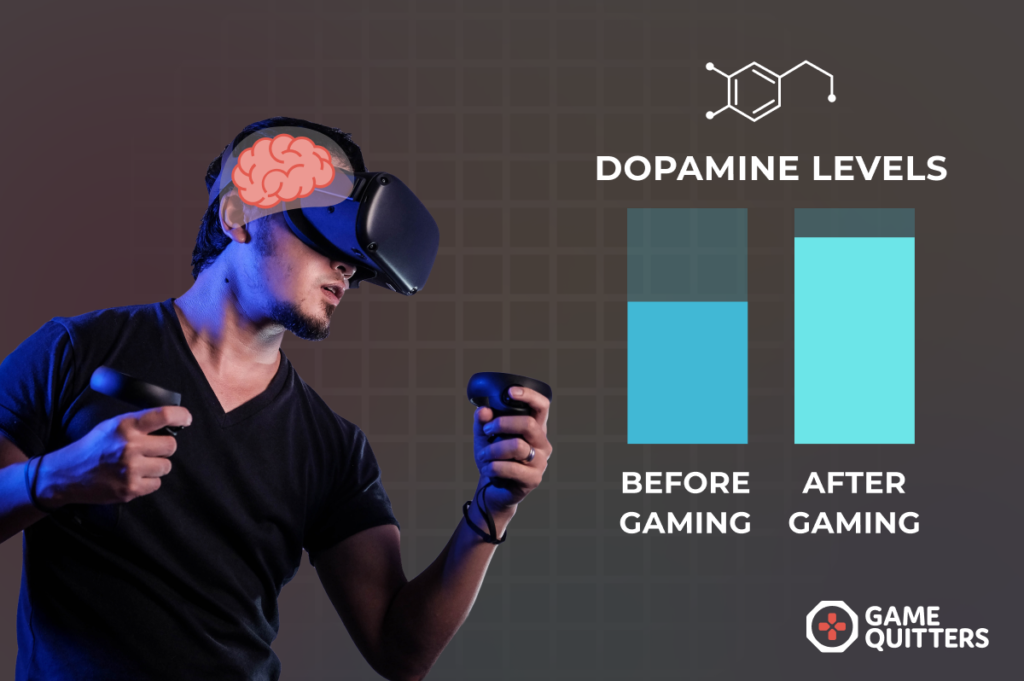
Video games are designed to be addictive using state-of-the-art behavioral psychology to keep you hooked. Games are immersive experiences that provide you with a high amount of dopamine, and overexposure to this level of stimulation can cause structural changes to your brain 1 1. The association between online gaming, social phobia, and depression: an internet survey × .
You begin to live in a world where you expect instant gratification. Games are so immersive that it’s easy to play for hours and hours without even noticing that a minute has gone by. They allow you to escape and see measurable progress. They are social and create an environment where you feel safe and in control.
Game developers also deploy manipulative game design features such as in-app purchases, microtransactions, and loot boxes that some governments have declared illegal – because they are a form of gambling. Gaming addiction exists because game companies are billion-dollar industries and the more people they have hooked on games, the more money they make.
What Are the Warning Signs?
The American Psychiatric Association has identified nine warning signs to watch for when it comes to recognising gaming disorder. Although these can be helpful to better understand the severity of your own situation, it’s important to always seek the advice of a professional.
- Preoccupation with video games. The individual thinks about previous gaming activity or anticipates playing the next game; Gaming becomes the dominant activity in daily life.
- Withdrawal symptoms when gaming is taken away. These symptoms are typically described as irritability, anxiety, boredom, cravings, or sadness.
- Tolerance – the need to spend increasing amounts of time engaged in video games. This may be motivated by a need for the completion of increasingly intricate, time-consuming, or difficult goals to achieve satisfaction and/or reduce fears of missing out.
- Unsuccessful attempts to control participation in video games.
- Loss of interests in previous hobbies and entertainment as a result of, and with the exception of, video games.
- Continued excessive use of games despite knowledge of psychosocial problems. The individual continues to play despite a negative impact.
- Has deceived family members, therapists, or others regarding their gaming.
- Use of video games to escape or relieve a negative mood (e.g., feelings of helplessness, guilt, depression, anxiety).
- Has jeopardized or lost a significant relationship, job, educational, or career opportunity because of participation in video games.
If you meet five (or more) of the following warning signs in a 12-month period, you may have an addiction and should seek the help of a professional immediately.
Effects of Video Game Addiction
Gaming addiction is a compulsive mental health disorder that can cause severe damage to one’s life. It’s common for a video game addict to spend over 10 hours a day gaming, usually well into the night, and many suffer from sleep deprivation 2 2. Massively multiplayer online role-playing games: comparing characteristics of addict vs non-addict online recruited gamers in a French adult population × . Immersed in their experience, gamers are known to have poor diets consisting mainly of energy drinks full of caffeine and sugar. Many are dehydrated and malnourished.
In more severe cases, gaming addicts report agoraphobia – a type of anxiety disorder in which they fear leaving the house – and others identify with hikikomori — a term popularized in Japan as reclusive adolescents or adults who withdraw from social life.
Gaming addicts experience many different negative effects, including poor mental health, being moody and irritable, depressed, physically aggressive, and refuse to go to school or work due to gaming. To be addicted to games is to experience functional impairment in multiple areas of your life, and the long-term effects can be devastating. Gaming addicts fail out of college. They get divorced. And they struggle with unemployment.
It is important to recognize the difference between someone addicted to gaming and a casual gamer. For a casual gamer, they may experience positive effects of gaming, whereas a gaming addict will be experiencing serious consequences of their gaming. For more information, learn about the different types of gamers.
Video Game Addiction Test
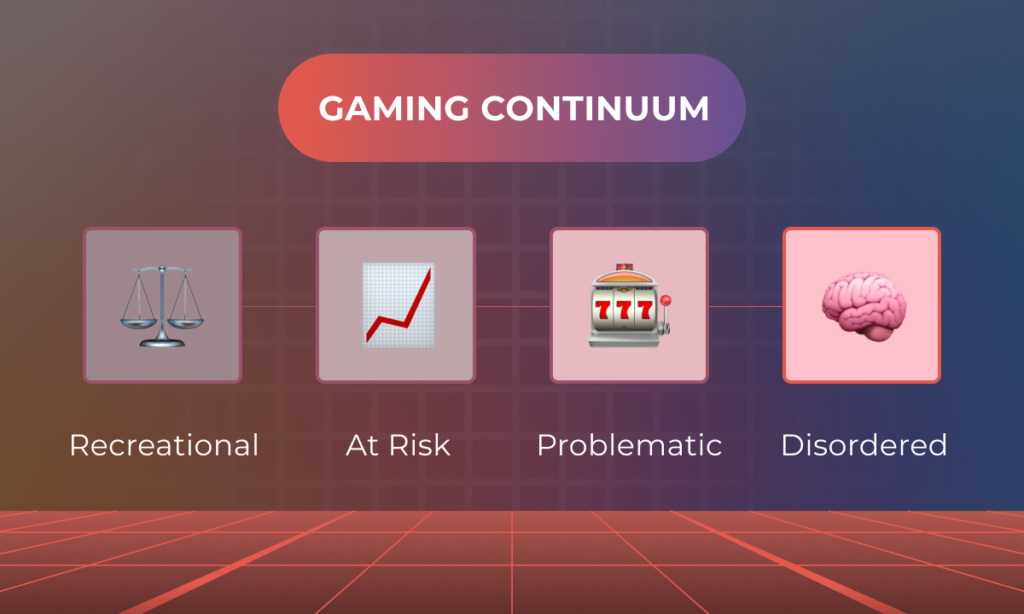
If you would like to screen yourself for a video game addiction, read the nine warning signs and symptoms above, or take our video game addiction test.
If you are concerned about your gaming use, we recommend seeking help immediately. You can either talk to a therapist or begin by starting a dopamine detox.
Personally, I knew I was addicted to video games when I started pretending to have jobs to deceive my family. Instead of going to work, I would sneak in through my bedroom window in order to keep playing.
The games I was most addicted to were World of Warcraft, Counter-Strike and Starcraft: Brood War. Most days I would play 16 hours a day. I didn’t care about anything else or how my gaming affected those around me. I just wanted to play and play and play.
Since sharing my story of being addicted to gaming, I’ve heard from tens of thousands of other people struggling too. I’ve had the honor of speaking around the world on the subject of gaming addiction, including at places like the World Health Organization Forum on Addictive Behaviors in Turkey, the International Conference on Behavioral Addiction in Japan, Eton College in London, the May Chidiac Foundation in Lebanon, the Mental Health Commission of Canada, and the National Conference on Problem Gambling.
My story has also been featured in two TEDx talks, NPR, BBC, Forbes, ABC 20/20, CNN, VICE, and Bloomberg, amongst many others.
Addiction or Underlying Mental Health Problem?
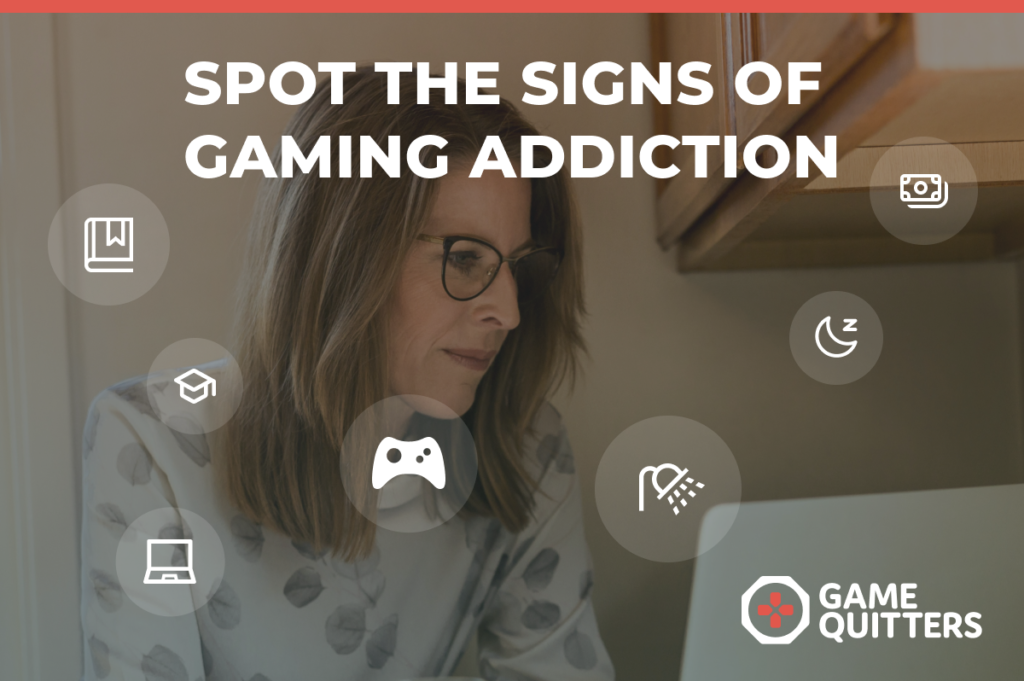
In the debate around video game addiction, you often hear the objection that gaming is better understood as a coping mechanism for underlying mental health problems such as anxiety, depression, or attention-deficit hyperactivity disorder (ADHD), and not a disorder in its own right. Is this true?
No. It is widely established in the addiction field that comorbidity – the simultaneous presence of two chronic diseases or conditions in a patient — is common, and gaming disorder is no exception . For some, gaming excessively will be a form of coping with another condition and may progress to a gaming addiction , comparable to the behavior of substance-related disorders, and for others gaming excessively will be a function of impairment.
Whether problematic gaming came first, or as a result of underlying mental health problems, therapeutic goals should include treatment of the gaming disorder itself because this disorder can be the underlying agent of functional impairment, and its treatment might be a prerequisite for effective treatment of comorbid conditions ,.
How to Treat Video Game Addiction
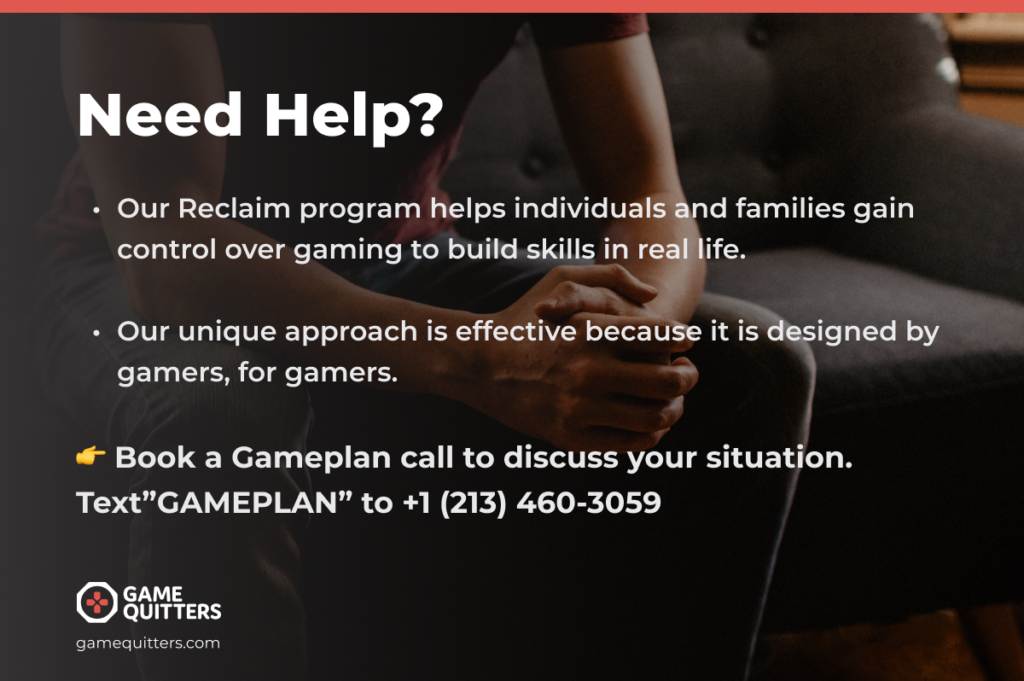
The important thing to remember is that no matter what difficulties you’re trying to overcome, you’re not alone. Now that gaming disorder has been recognised as an official disease, more and more people are able to seek the help that they need.
The good news is that help is available for someone struggling with gaming disorder. Game Quitters is an online peer support community with hundreds of free videos, a community forum, parent support community and an affordable program for both gamers and for parents.
If you’re looking for personal support, check out our coaching programs. For professional help, browse our directory for a video game addiction therapist.
If you’re struggling to imagine your life being any different, have a look at our library of video game addiction stories. Hundreds of people have turned their lives around through Game Quitters, and you can do the same.
Even if you don’t want to quit gaming forever, you might be amazed how much your life could change if you take some time away from video games. Don’t look back a year from now and regret not taking action.
Take 90 days off gaming now, and change your life for the better.
